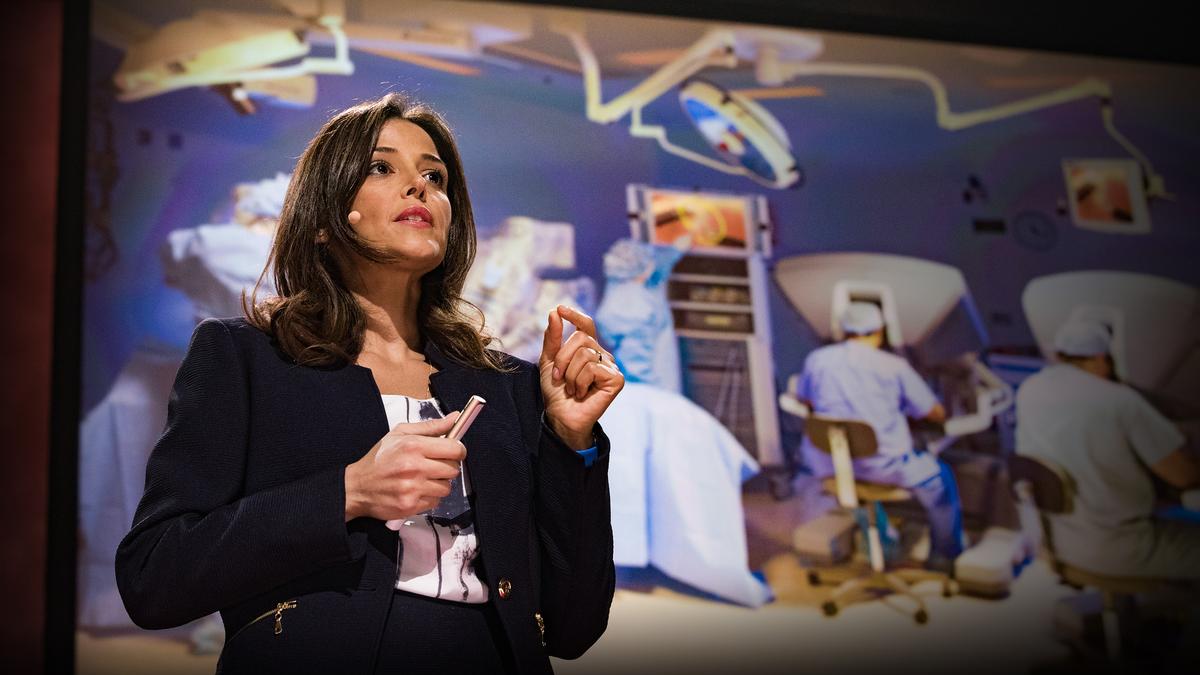Beyond 70: a technological NHS

05 Jul 2018
Nadine Hachach-Haram
Nadine Hachach-Haram is a plastic and reconstructive surgeon at St Thomas’ Hospital, London, and co-founder of Proximie, an award-winning augmented reality technology company providing solutions to improve healthcare systems.
The 70th anniversary of the NHS is a fitting time to contemplate the history of a truly great institution, celebrate its many achievements and evaluate the changes it has gone through.
But it is also a time to look forward. How will it evolve over the next 70 years and what part will digital technology play in its future development?
Earlier this week, the National Clinical Director for Health Innovation, Professor Tony Young, predicted a glowing future for the NHS due to the emergence of many healthcare innovations already shaping our services, with more in the pipeline.
I have not yet been in the surgical profession 10 years, and already I have seen technology open up new horizons. Smartphone apps have emerged, providing a whole range of healthcare solutions - from an app to detect early signs of kidney failure, to ones reminding patients to take their medication. Virtual reality (VR) is being used in children’s hospitals to remove some of the fear children may experience by allowing them virtual access to the operating theatre. And these are just a handful of examples, there is so much work being done up and down the country to tackle ‘pain points’ in our healthcare system, that I too can see exciting times ahead
Within surgery, part of the Royal College of Surgeons’ Commission on the Future of Surgery, of which I am a member, is looking at a number of technologies it believes are most likely to shape the future of surgical provision. These technologies are aimed at making the NHS more efficient, improve access to care and cope with rising demand. There will always be challenges with a free-at-the-point-of-delivery service, but technology can help us work smarter to the benefit of patients. The Commission will report its findings in the autumn.
We already have evidence that the NHS can adopt new techniques with the huge success of minimally invasive surgery and robotics, which are now part of mainstream practice. Robotics will become even cleverer in the future with the use of nano robotics where surgeons will be able to achieve even greater precision in theatres. Artificial intelligence (AI) and augmented reality (AR) technology are also slowly being adopted into healthcare and are likely to have a significant impact in the years ahead, particularly as they carry the added benefits of high agility, easy deployment and low cost.
Telemedicine is increasingly becoming the norm, with patients often preferring remote consultation as it it allows them to be seen locally rather than travelling to specialist centres, often based in big cities. Assessments can be done instantly via a laptop or a tablet, meaning patients can be moved through the system more quickly, freeing up resources.
With AI becoming increasingly sophisticated, more and more of the routine work involved in consultations can also be automated. In outpatient care, Remote Patient Monitoring (RPM) systems worn on the body of patients can feedback all of the data required to assess the progress of recovery. Used in a wider context, RPM will lead to improved early detection and diagnosis.
There is also the recent use of 3D printers in transplant procedures which were used to help doctors practise the first adult-to-child kidney transplant in the UK before undertaking the operation. Computer modelling provides similar opportunities, and one day could be used in AR or VR environments to assist with surgical planning.
In theatre, I believe we will see more and more collaboration between surgical teams working in different locations, increasing the availability of any given procedure in any given hospital. AR plays a critical role here in providing a rich, multi-sensory collaborative experience. As the technology develops, I expect to see AR software that will link to the results of xrays, CT or MRI scans to provide ‘live’ internal images of a patient as the surgical team works. I also see AI playing a role in remote surgery, with practitioners able to request information, data and guidance from the medical equivalent of Alexa or Siri.
Not so long ago, these kinds of approaches would have sounded like the stuff of science fiction. But these are already solutions which are beginning to make healthcare more efficient, accessible and cost-effective.
In keeping with 70 years’ of innovation, the NHS is evolving to keep up with the ever-changing world in which we live. We can only imagine what else will change in the next 70 years.

